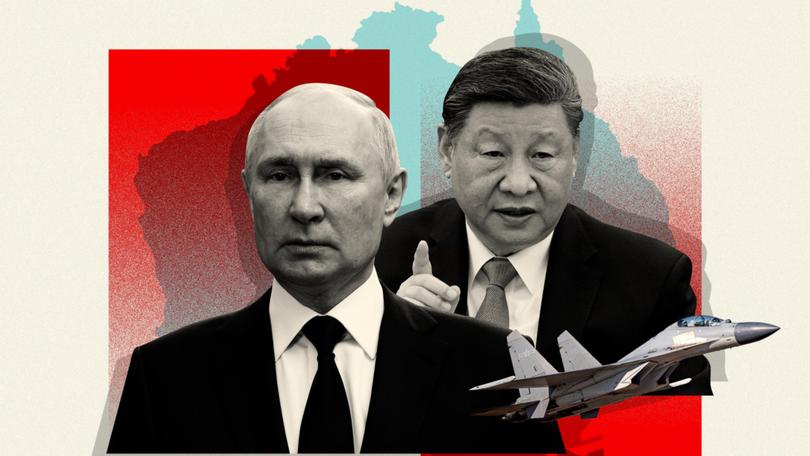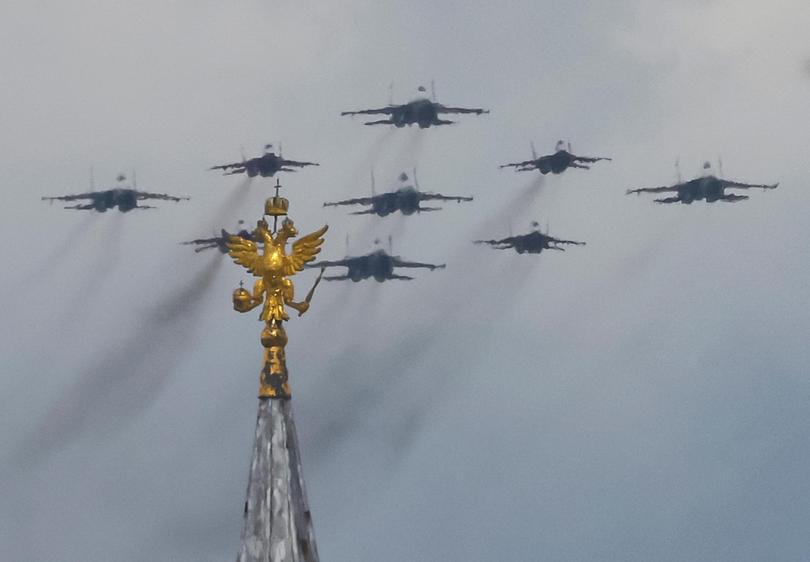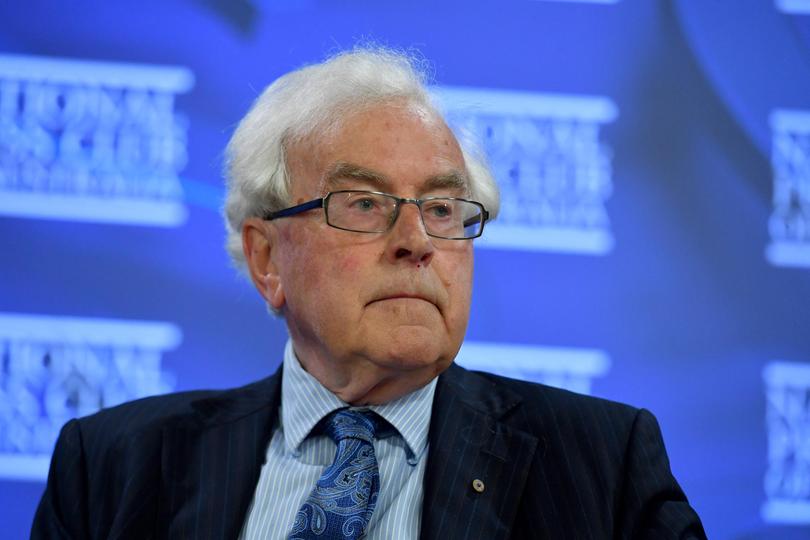Paul Dibb, architect of Australia defence policy, issues grim warning on China and Russia amid Trump chaos
‘We are just coasting along, she’ll be right, that sort of attitude and all the evidence is starting to show without exaggerating that she won’t be alright.’

Australia urgently needs to adopt a policy of defence self-reliance as the United States remains “in a shambles” and China and Russia plot to assert greater influence in the Pacific region.
That’s the view of the father of Australia’s national defence policy, Paul Dibb, as he urged the second government of Anthony Albanese to urgently invest more in the Australian Defence Force and abandon the “she’ll be right mate” attitude toward national security.
Professor Dibb, a former Defence Intelligence Organisation director and deputy secretary of Defence’s strategy and intelligence, said the Government recognised the deterioration of the region’s strategic outlook.
Sign up to The Nightly's newsletters.
Get the first look at the digital newspaper, curated daily stories and breaking headlines delivered to your inbox.
By continuing you agree to our Terms and Privacy Policy.But it was not doing enough to ensure the ADF had the capability to surge quickly from “a peacetime force” to one adequately armed to stare down potential adversaries.
“We are just coasting along, she’ll be right, that sort of attitude and all the evidence is starting to show without exaggerating that she won’t be alright,” he said.
His assessment on the state of Australia’s preparedness comes as Chinese leader Xi Jinping will this week visit Moscow to hold high-level talks with Vladimir Putin and take part in Victory Day celebrations.
According to the Kremlin, the talks on May 9-10 will centre on “further development of relations of comprehensive partnership and strategic interaction” – notably in the region.

Professor Dibb, an emeritus professor of strategic studies at the Australian National University, said last month’s circumnavigating of Australia by Chinese warships and Russian overtures to base bombers at an Indonesian airbase was an early show of the alliance.
“It’s cheeky, it is no accident that a few weeks ago the Communist Chinese flotilla was doing the circumnavigation for the first time ever of our continent,” he said.
“Even the Soviet navy never did that, then a few weeks later we get this (Russian) aircraft issue.
“Do I think the Russians are coordinating with the Chinese, I bet they are. It is about ‘take notice of us at a time when your great and powerful leader of the free world is a shambles, look at what we can do together’.”
He said in December 2017 that Russian strategic Tu-95MS bombers, supported by two Ilyushin Il-78 air refuellers, landed in Biak, on the northern coast of Indonesia’s eastern province of Papua after a reconnaissance mission over the South Pacific and Papua New Guinea. It also reportedly looked at potential navy bases to berth at around New Caledonia.
He said after former Prime Minister Tony Abbott threatened to “shirt front” Putin over the shooting down of the Malaysian Airlines MH17 flight in 2014, it was no coincidence a fleet of Russian ships turned up off the Brisbane coast.
“That is what they do, in this case it was Putin saying ‘you’re going to shirt front me are you, look at what I can do, look at what I can do’,” Professor Dibb said.
“Today all of this is happening, without exaggerating it too much, when we’ve got the leader of the free world with (Donald) Trump in shambles and I don’t believe we would ever pull out of the ANZUS treaty but we will sure as hell need to make sure we make it clear to the Americans we are going to deliberately develop a more, not independent, but a more self-reliant capability to intercept, track, and – if necessary – destroy potential enemies.
“We need to move toward a more self-reliant (stance), that does not mean we are going to pull out of the ANZUS alliance and be totally self-reliant – that’s a stupid argument that only the Greens would mount.”
That self-reliance included a greater sovereign capability to manufacture our own munitions, concerted efforts around ADF recruitment, a Defence budget boost and quicker acquisition of hardware, including ships, uncrewed aircraft and longer-range missiles. The Australian public also needed to be better briefed on the seriousness of the threat.

Professor Dibb said Australia would always have an alliance with the US but under the present administration and jumbled foreign policy, it could not rely solely on their forces for our national defences.
He said the basic size and structure of the ADF was similar to what it was 38 years ago when he created the basis for our national defence strategy today with the 1986 Dibb Review and 1987 Defence White Paper; same troop, ship and aircraft numbers.
Professor Dibb praised the ADF for moving in the right direction but said government talks about strategic threats was not being matched by defence dollars and rapid acquisitions.
“I worry that we are going to be caught unprepared,” he said.
